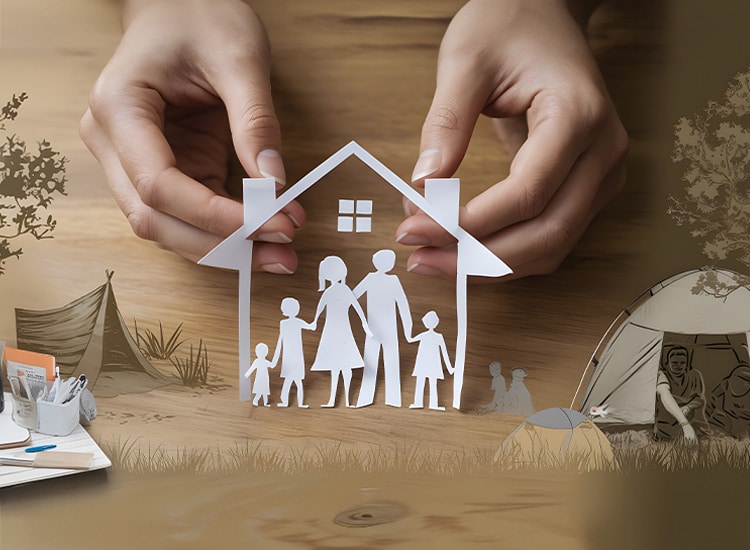Adopting a child is a major responsibility and one of the highest expressions of human compassion. In Armenia, the adoption process is regulated by law and designed to ensure the best interests of the child, while also respecting the rights of both the adoptive parent(s) and the child. In this article, we will discuss how you can legally adopt a child in Armenia in 2025 by providing comprehensive information about the stages of the process, the requirements, and the related legal matters.
Legal Regulation of Adoption in Armenia
In Armenia, the adoption process is governed by the Family Code of the Republic of Armenia, as well as a number of international agreements that the country has joined, such as the United Nations Convention on the Rights of the Child.
As of 2025, the adoption process is overseen by the Ministry of Labor and Social Affairs of the Republic of Armenia, in collaboration with regional authorities and the courts.
Who Can Adopt a Child in Armenia

An adoptive parent can be:
- A citizen of the Republic of Armenia who has full legal capacity.
- An Armenian citizen residing abroad, provided that they apply through legal procedures and comply with the relevant requirements.
- A foreign citizen, but only in cases where no other adoption options are found within the Republic of Armenia for the child.
This type of adoption is subject to special procedures in accordance with international adoption regulations.
Basic Requirements for Adoption
To apply for adoption in 2025, the applicant must meet the following essential requirements:
Age Requirements
- The adoptive parent must be at least 18 years old, and there must be at least an 18-year age difference between the adopter and the child.
- A person may not adopt a child if the age difference between them exceeds 50 years, except in cases where the adopter is a sibling or close relative of the child.
Marital Status
- The adoptive parent(s) must be legally married if the adoption is being carried out by a couple.
- A person may also adopt a child as a single individual.
Social and Psychological Stability
- The adoptive parent must have adequate material conditions to provide proper care for the child.
- They must have no criminal record, especially for crimes against children, family, or life.
Stages of the Adoption Process
1. Initial Consultation
Before beginning the adoption process, it is necessary to receive consultation from the Ministry of Labor and Social Affairs of the Republic of Armenia or the relevant regional authority to understand all legal, psychological, and procedural aspects.
2. Preparation of Documents
The applicant must prepare the following documents:
- Copy of passport
- Marriage certificate (if applicable)
- Proof of residence
- Proof of income or employment documents
- Medical certificate regarding health condition
- Certificate of no criminal record
- Letter of motivation explaining the reasons for adoption
3. Submission and Evaluation Phase
The prepared documents are submitted to the social service or adoption authority. At this stage, a social and psychological assessment of the applicant is carried out to determine the appropriateness of the adoption.
4. Child Selection and Introduction
If the applicant is approved, they may be offered the opportunity to review information about available children. If a decision is made to establish a parental relationship with a specific child, a period of introduction and interaction is arranged.
5. Court Decision
The adoption is finalized only by a court decision. The court evaluates the submitted documents, the explanations of the parties involved, and the best interests of the child to determine the legality of the adoption.
6. Registration and the Child’s New Legal Status
Following the court decision, the adoption is registered with the Civil Status Acts Registration Office. The child is then legally recognized as the adoptive parent’s child, with all the rights provided by law.
The Child’s Legal and Social Status After Adoption

Once a child is adopted, they receive full legal status within the adoptive family. Specifically:
- The child takes the adoptive parent’s last name.
- The child’s first name may also be changed, based on the adoptive parent’s request.
- The child obtains the same inheritance, property, social, and personal rights as biological children.
Rights and Responsibilities of the Adoptive Parent
Rights:
- The right to fully raise the child based on family values.
- The right to determine the child’s place of residence, education, healthcare, and other personal matters.
- The right to benefit from all state privileges and allowances available to parents.
Responsibilities:
- To provide the child with education, healthcare services, and moral-psychological support.
- To uphold the child’s best interests and protect their rights in all circumstances.
- To respect the child’s identity and support their personal development.
International Adoption
When a foreign citizen wishes to adopt a child born in Armenia, the following conditions must be met:
- Compliance with the adoption laws of the adoptive parent’s home country.
- No available adoption opportunities for the child within the Republic of Armenia.
- Implementation of the adoption process in accordance with the principles of the Hague Convention.
This process is highly bureaucratic and requires international cooperation between the relevant authorities.
Special Note: Child’s Consent
If the child to be adopted is 10 years of age or older, written consent from the child is mandatory. This is a vital component in protecting the child’s interests and recognizing their legal awareness.
Possible Grounds for Rejection
An adoption may be rejected if:
- The applicant does not meet the legal requirements.
- The submitted documents are falsified or incomplete.
- The child’s best interests are not protected (e.g., the adoption is intended for exploitation, trafficking, or other unlawful purposes).
Conclusion
Adopting a child in the Republic of Armenia in 2025 is a legal and achievable process that requires responsibility, moral readiness, and legal awareness. This process not only changes the life of a child but also creates a new family founded on love, trust, and security.
If you are ready to care for a child’s future and provide them with love and support, adoption is a real opportunity to transform both your life and that of the child.
If you would like to receive consultation or begin the process, contact the social service office in your place of residence or visit the official website of the Ministry of Labor and Social Affairs of Armenia at www.mlsa.am. For clear legal guidance, we recommend consulting with the lawyers at the LSA Law Office.







